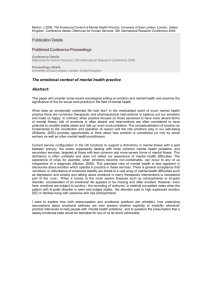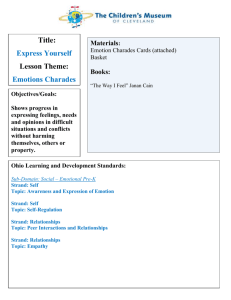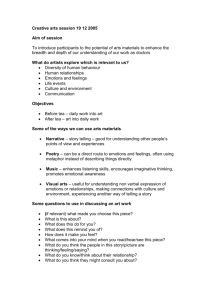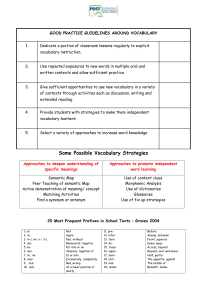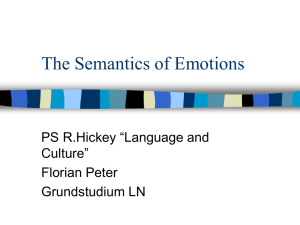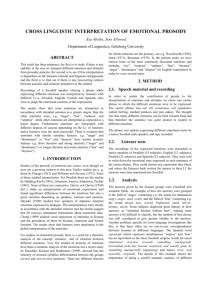Towards a historical semantics of emotions
advertisement
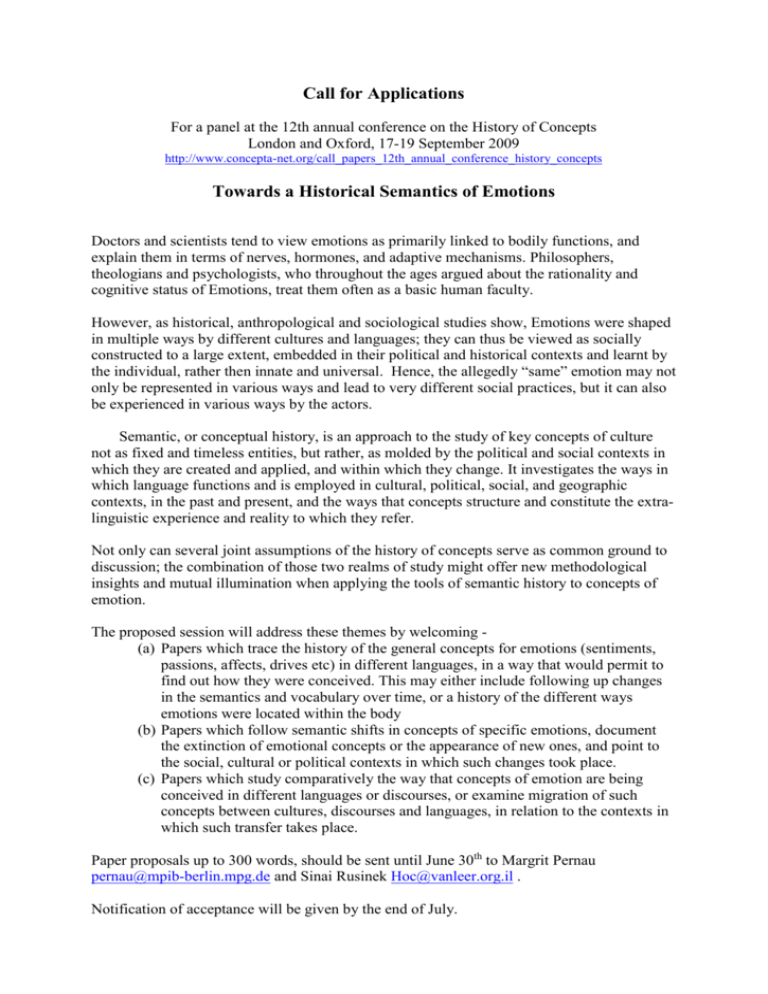
Call for Applications For a panel at the 12th annual conference on the History of Concepts London and Oxford, 17-19 September 2009 http://www.concepta-net.org/call_papers_12th_annual_conference_history_concepts Towards a Historical Semantics of Emotions Doctors and scientists tend to view emotions as primarily linked to bodily functions, and explain them in terms of nerves, hormones, and adaptive mechanisms. Philosophers, theologians and psychologists, who throughout the ages argued about the rationality and cognitive status of Emotions, treat them often as a basic human faculty. However, as historical, anthropological and sociological studies show, Emotions were shaped in multiple ways by different cultures and languages; they can thus be viewed as socially constructed to a large extent, embedded in their political and historical contexts and learnt by the individual, rather then innate and universal. Hence, the allegedly “same” emotion may not only be represented in various ways and lead to very different social practices, but it can also be experienced in various ways by the actors. Semantic, or conceptual history, is an approach to the study of key concepts of culture not as fixed and timeless entities, but rather, as molded by the political and social contexts in which they are created and applied, and within which they change. It investigates the ways in which language functions and is employed in cultural, political, social, and geographic contexts, in the past and present, and the ways that concepts structure and constitute the extralinguistic experience and reality to which they refer. Not only can several joint assumptions of the history of concepts serve as common ground to discussion; the combination of those two realms of study might offer new methodological insights and mutual illumination when applying the tools of semantic history to concepts of emotion. The proposed session will address these themes by welcoming (a) Papers which trace the history of the general concepts for emotions (sentiments, passions, affects, drives etc) in different languages, in a way that would permit to find out how they were conceived. This may either include following up changes in the semantics and vocabulary over time, or a history of the different ways emotions were located within the body (b) Papers which follow semantic shifts in concepts of specific emotions, document the extinction of emotional concepts or the appearance of new ones, and point to the social, cultural or political contexts in which such changes took place. (c) Papers which study comparatively the way that concepts of emotion are being conceived in different languages or discourses, or examine migration of such concepts between cultures, discourses and languages, in relation to the contexts in which such transfer takes place. Paper proposals up to 300 words, should be sent until June 30th to Margrit Pernau pernau@mpib-berlin.mpg.de and Sinai Rusinek Hoc@vanleer.org.il . Notification of acceptance will be given by the end of July.




